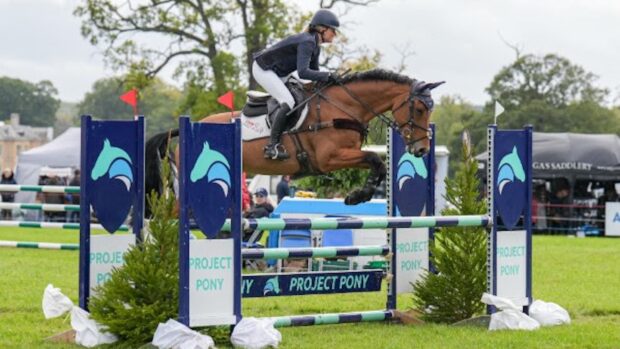3 January 2002
Follow Mark Todd’s top 10 tips for a successful and stress-free competition season
Planning ahead will reduce stress. The day before, make sure that your equipment is ready, sothere are no last-minute surprises. When you’re new, finding you’ve arrived with no girth or bridle can be a major distraction. When you’re as old as me, you go to the next door lorry and borrow!
Work out your timings and leave enough time to warm up for each phase; if you’re flustered, this will be communicated to the horse.
Think about the warm-up your horse needs. Young horses which are not strong can become tired after 20 minutes’ warm-up, which will result in them switching off. A more buzzy horse may need to be lunged or ridden around to get used to the sights.
Think about the going on which you are warming up; it’s just as important as that on the course. Don’t exhaust your horse by over-working him in a bog or hammer him on hard ground.
In dressage, always think forward to the next movement. If you fluff a transition, don’t get distracted by thinking: “I’ve blown it” but get straight back into the rhythm, make the best of it and look forward to the next movement.
Wear your lucky socks, shirt, boots or whatever, if it makes you feel better. Positive thinking is everything.
Think about the course as a whole. Work out where you can make up time, such as the open, galloping parts; if you’re in the lead after dressage, think about where caution might be employed about a difficult direct route; if you’re lying 42nd, you can take more of a gamble.
While you must, of course, have a clear plan across country, be prepared to have to make a split-second change. One time, Charisma jumped into the lake at Badminton and it just didn’t feel right, so I whipped him round and took the slow route out. A few time-penalties were better than the 20 that were undoubtedly staring us in the face.
Also, if your horse has a fright, don’t just think: “I’ll get away with it next time”; consider an alternative, confidence-building route and sacrifice the time.
Don’t be negative about any aspect of the competition or you might as well leave the horse in the stable at home.
Don’t ride to win all the time, especially on a young horse. Sometimes, the way the horse goes is more important than the score.
Read Mark Todd’s advice on how to make the most of competitions in this week’s (3 January) Horse & Hound, or click here to subscribe.
Stay in touch with all the news in the run-up to and throughout the major shows and events during 2026 and beyond with a Horse & Hound subscription. Subscribe today for all you need to know ahead of these major events, plus online reports on the action as it happens from our expert team of reporters and in-depth analysis in our special commemorative magazines. Have a subscription already? Set up your unlimited website access now



